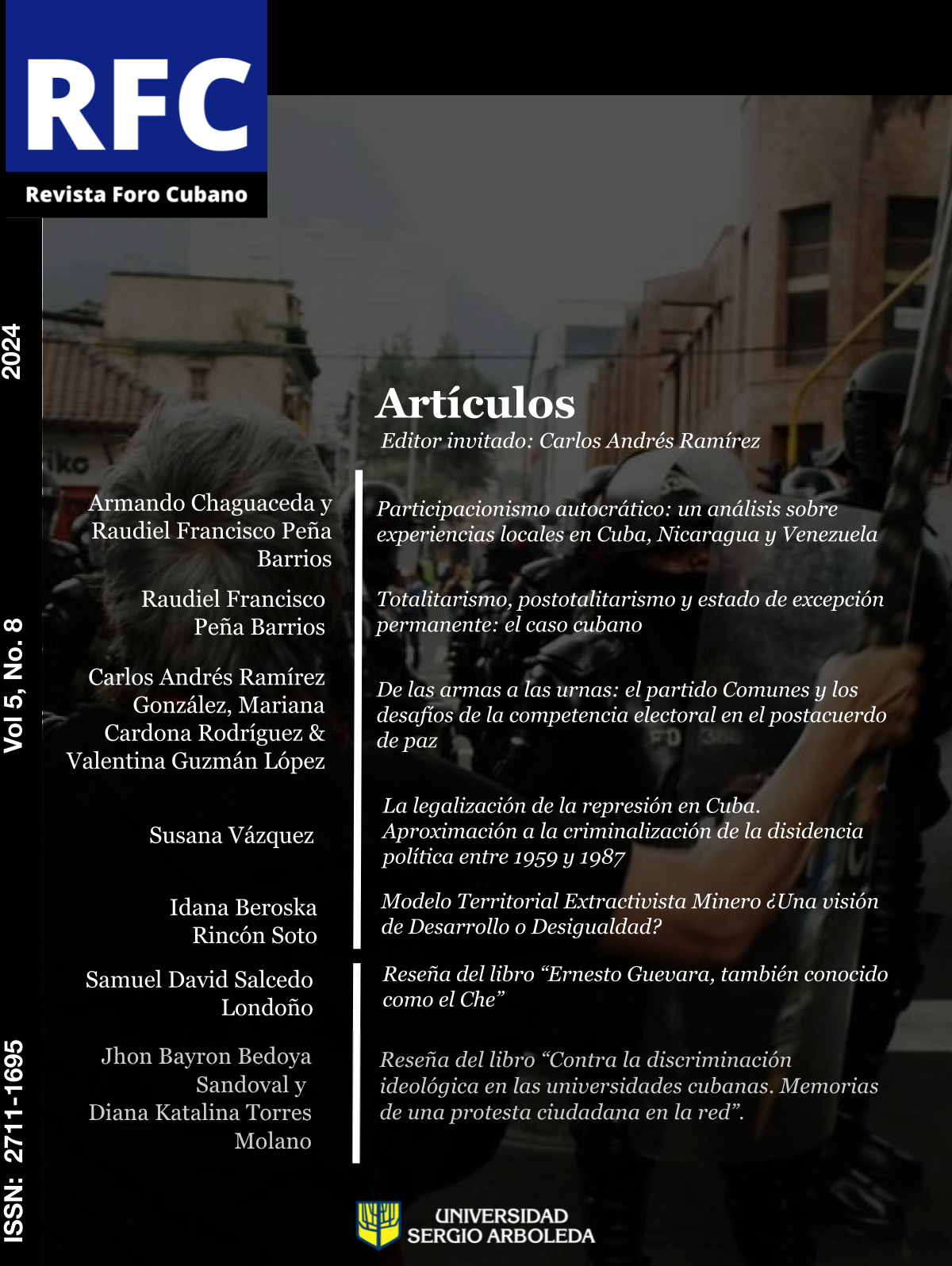Abstract
In this article, I analyze the evolution of the Cuban political regime from 1959 to the present, with emphasis on the restrictions imposed on human rights due to the existence of a permanent state of exception. The significance of this analysis lies in the necessity to assess how the totalitarian nature, initially, and post-totalitarian nature, subsequently, of the Cuban regime is evidenced in the Constitutions of 1976 and 2019, and its connection with the regulation of exceptional circumstances. To achieve this, I will theoretically and normatively analyze how such circumstances have been regulated throughout the evolution of the political regime. It is concluded that such regulation does not serve as a mechanism to defend constitutional content, but rather responds to the antidemocratic nature of the political regime in Cuba.

This work is licensed under a Creative Commons Attribution-NonCommercial-NoDerivatives 4.0 International License.
Copyright (c) 2025 Journal Foro Cubano

